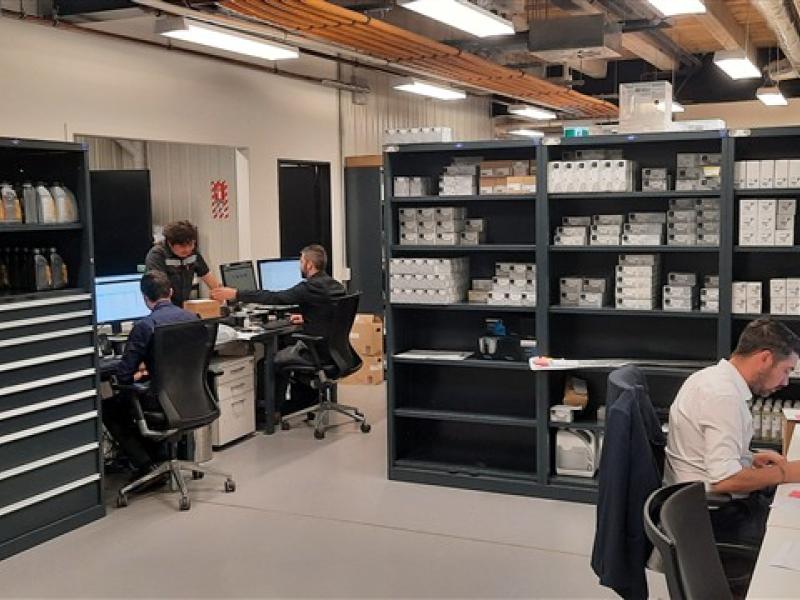A recent poll reveals a mixed bag of sentiments among New Zealand’s small and medium-sized enterprises (SMEs) regarding the performance of the Coalition Government.
As the deadline for the Government’s latest three-month action plan approaches, SME owners and decision-makers have rated the Government’s overall performance a median score of six out of ten, according to a new poll commissioned by MYOB.
The survey, which involved over 500 SME operators across New Zealand, highlights a divided opinion on the Government’s current support and action. While 35 percent of respondents expressed satisfaction with the Government’s initiatives, 27 percent were dissatisfied, and a significant 39 percent remained neutral.
Emma Fawcett, MYOB’s Executive General Manager – SME, noted a subtle improvement compared to last year’s sentiments. “Heading into last year’s General Election, a significant majority of SMEs were dissatisfied with the previous Government and hoping for a change,” Fawcett says.
“Now, nine months into this term, it’s evident that SMEs are feeling a bit more encouraged by elements of its approach.”
“While our findings show there is still room for improvement in the eyes of the small business community, the current focus on reducing red tape and delivering legislative changes that enhance or simplify business processes will continue to go some way toward this.”
Regarding leadership preferences, Prime Minister Christopher Luxon leads with 45 percent of SME support, followed by Chris Hipkins at 21 percent. David Seymour and Chlöe Swarbrick each receive six percent, while Winston Peters garners five percent.
A key feature of the current Government’s approach is its use of three-month action plans. According to the survey, 36 percent of respondents find these plans helpful for their clarity, accountability, and transparency. However, 30 percent are undecided, 20 percent view them as unhelpful, and 10 percent are unfamiliar with them.
“Offering a clear direction will provide more certainty, which will in turn help to improve confidence as business owners have more information on which to base their decisions,” Fawcett says.
Cost pressures remain a significant challenge for SMEs. The survey indicates that 62 percent of business owners cite ongoing inflation and cost-of-living challenges as major concerns. Other issues include overhead costs (35 percent), fuel prices (34 percent), high interest rates (33 percent), and declining customer demand (30 percent).
The impact of these challenges is evident, with 46 percent of SMEs reporting decreased revenue compared to last year. Despite this, 25 percent of SMEs anticipate more work than usual in the coming months, although 34 percent face reduced sales or work.
“While this month’s OCR decision offers a small glimmer of hope for relief from rising costs, there is still a long way to go before the effects are truly felt by local businesses,” says Fawcett.
The results of this survey underscore the ongoing challenges and cautious optimism within the SME sector as the coalition Government continues to navigate its term in office.
Thoughts on the economy
In a separate survey, business coaching and advisory firm Business Changing, has just completed a State of the Nation survey, asking 239 local business owners for their thoughts and experiences on the current economy.
According to business owners, they are finding the current economy even harder than Covid or the GFC, with one in five fearing they might have to close their business, and 49 percent of respondents indicating that they are struggling with their mental health – but there is optimism about the outlook ahead.
More than 75% of surveyed businesses said the current economy is having more of a detrimental impact on their business than Covid times. Sixty-three percent believe the current economy is the hardest they have ever had to operate in (including the GFC).
The biggest worry for the year ahead for 73 percent of businesses is customers not spending, followed by cashflow concerns. Many have spent their cash reserves during Covid times.
Zac de Silva says, Principal of Business Changing says: “There was consensus that interest rate drops will take a long time to flow into improved sales. There is huge pressure around higher standard operating costs combined with less-than-ideal sales, contributing to profitability and cashflow concerns. More than one third of businesses were worried about the Reserve Bank not dropping interest rates soon enough.”
Recent sales for May to July have been very challenging for business owners. Over half (54 percent) of respondents said their revenue had declined over the recent three months compared to a year ago, including one in three companies whose sales have dropped by more than 15 percent and almost one in 10 companies who reported a drop of more than 40 percent. Just under 1 in 3 companies experienced sales growth in the past three months.
Three industries stood out as doing it the hardest over the past three months with sharp decreases in sales: Tourism (75 percent were down), construction (74 percent were down) and hospitality (69 percent were down). Surprisingly, retail was in line with the average with 52 percent of retail businesses having a decrease. Only 28 percent of service industry businesses reported a decrease in sales.
Still, despite businesses struggling and feeling a real drop in sales and customer demand, business owners have a quiet confidence in the future of the NZ economy.
A net 7 percent feel negative about the outlook for the NZ economy this year, compared to a net 22 percent last year, and 54 percent in the 2022 survey. So overall, a positive trend – thanks to business owners’ perception around the change in government in 2023.
Courtesy NZBusiness






